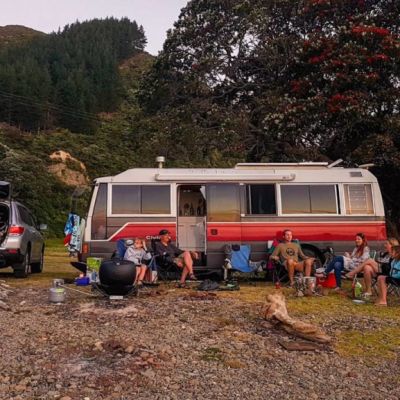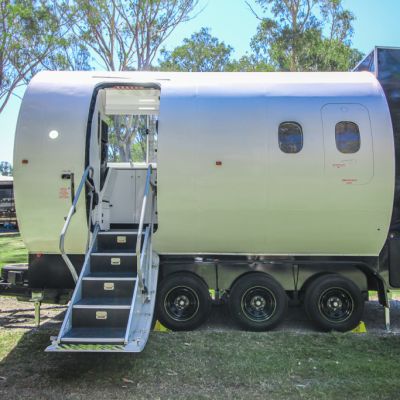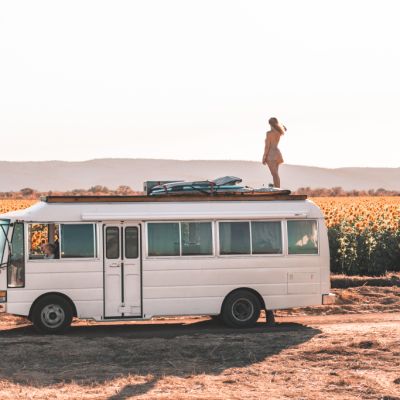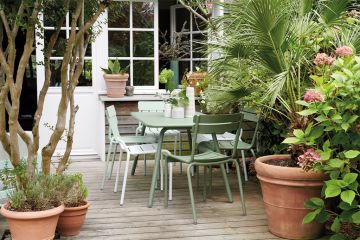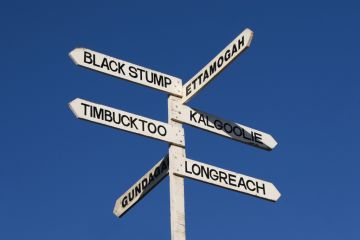This converted school bus is a house in disguise
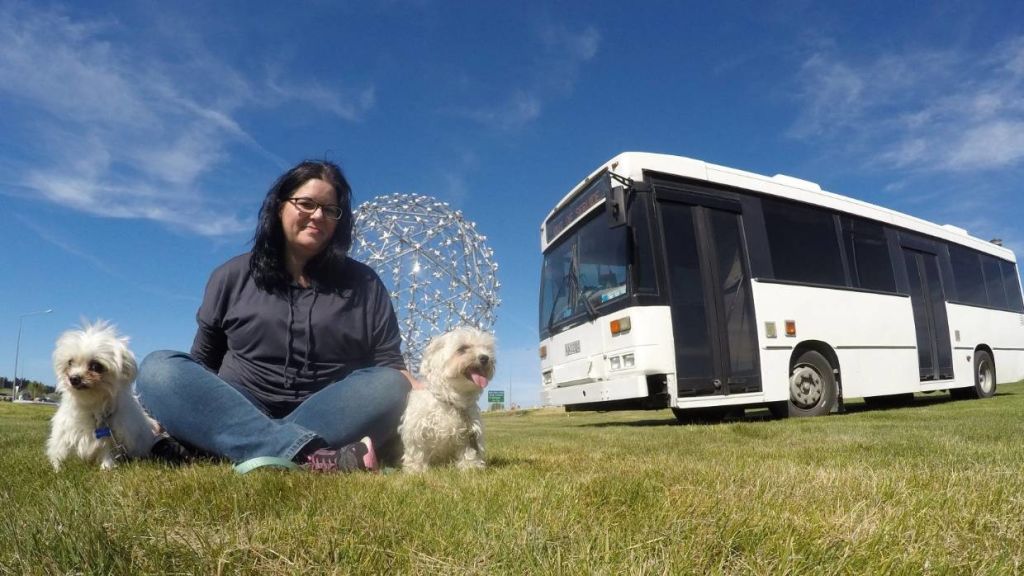
Life’s traumas often spark big changes, and that’s what happened to New Zealand woman Sharla May.
Seven years ago May’s father had a series of strokes that prompted her thinking about her own life decisions.
“I was in my 30s and asked myself, ‘What am I doing with my life?'” she says. “You don’t know how long you’ve got. Why am I getting into all this debt with a house?
Hear all about life on the road on Somewhere Else :
“I’ve always liked to travel a lot, and I thought why not hit the road while I am still young and have my fitness and health.”
So May, who is the manager of the Tiny House Conference, sold up and built a tiny house – just like that. It cost her $9500 and she built it on a truck trailer unit. “Once you start downsizing, you realise you get pleasure in other things,” she says.
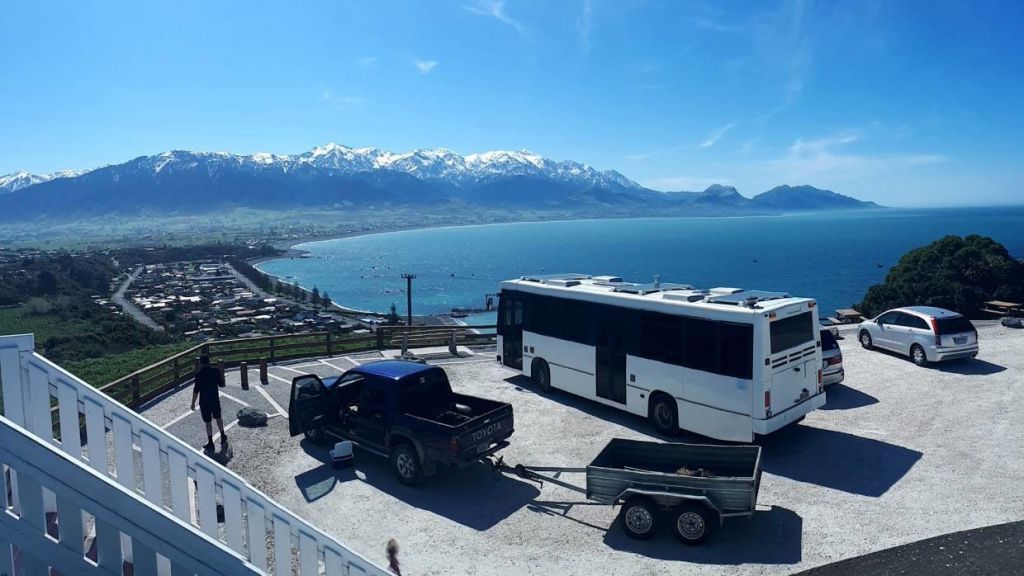
But May says the tiny house was not as mobile as she would have liked, so in 2018 she sold it. “I did very well out of it.”
She then started looking for a motorhome, and didn’t find anything she liked. “A lot of motorhomes I looked at were very plasticky looking. I’m young and I wanted something that expressed my personality.”
The solution? May bought a school bus that still had all its original seats inside, and set about a major DIY bus conversion. Not that you would know it; she deliberately avoided making her bus look like a house bus, so she doesn’t attract unwanted attention.
“I spent six months converting it. I prefer to give things a go and there are lots of ‘how-to’ videos on Youtube that helped me – there’s always someone who has done a detailed video of a project. The only thing I didn’t make was the kitchen cabinetry. But I managed to install a diesel heater myself.”
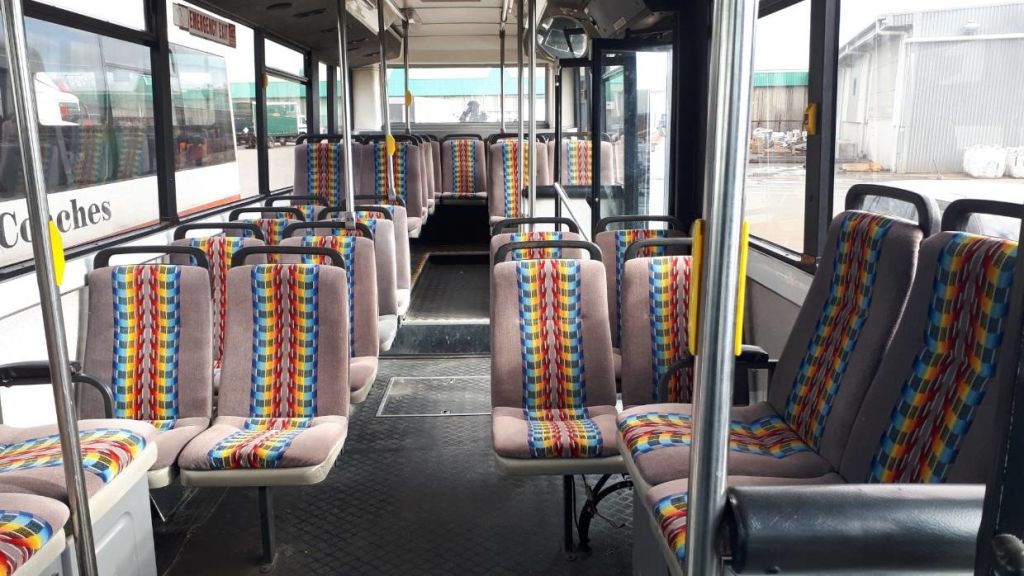
May also found lots of ways to save costs. For example, she first found the measurements for cheap, ready-made blinds and then had her new bus windows made to the same dimensions. And she made carpet mats to a set size that means they can be rolled up easily and stored onboard over the summer.
She has solar panels, batteries and an inverter, so she can run 240V appliances, including a TV and laptops. She also runs a Bluetooth sound system, a refrigerator, an ignition system for a gas hot water unit, lighting and roof fans. She has a gas oven and cooktop.
On the road
Once the bus was complete, May hit the road. “My father died last year and he never got to do this, even though he always wanted to. So now he comes travelling with me – I have some of his ashes.”
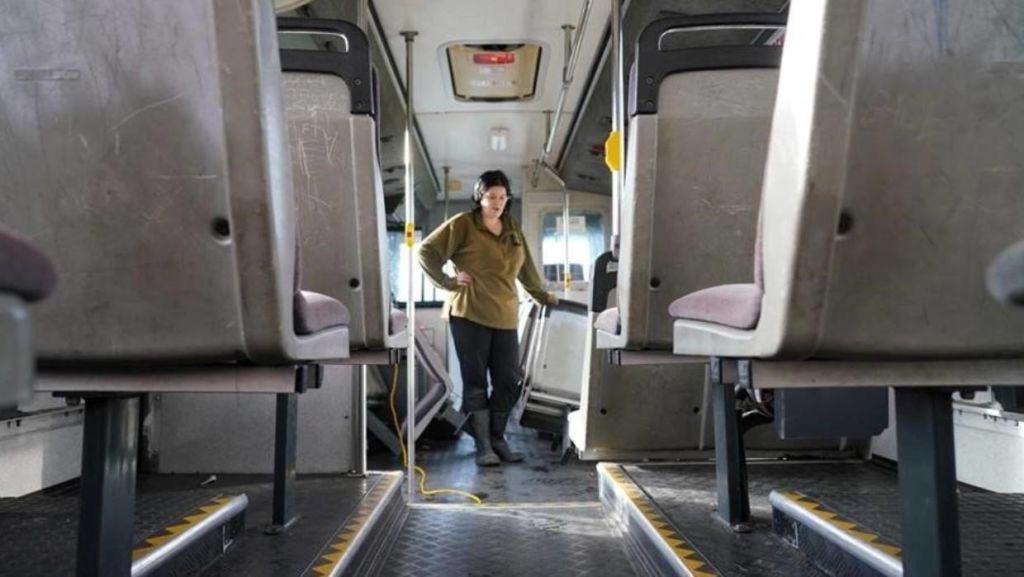
May also has two little dogs who keep her company everywhere she goes. “The dogs love it. Every time they go outside, we’re in a new place.”
And she says she now has friends all over the country. “It’s funny, but when I arrive in town they always offer me a bed, but I prefer my own bed. It’s especially great to decide to head out to the beach for the weekend with friends. I don’t have to pack a thing.”
May says life on the road is a lot cheaper than she thought. “When you’re on holiday you have a lot of expenses with accommodation and eating out. You pay top dollar. I like to go to remote places, and I stock up with enough food to last a couple of weeks.
“I freedom camp, and I recommend others read up about the Freedom Camping Act so they know where they stand. There is a freedom camping app, but I find those locations can be overpopulated. I want to get away from everyone, not join up with them.”
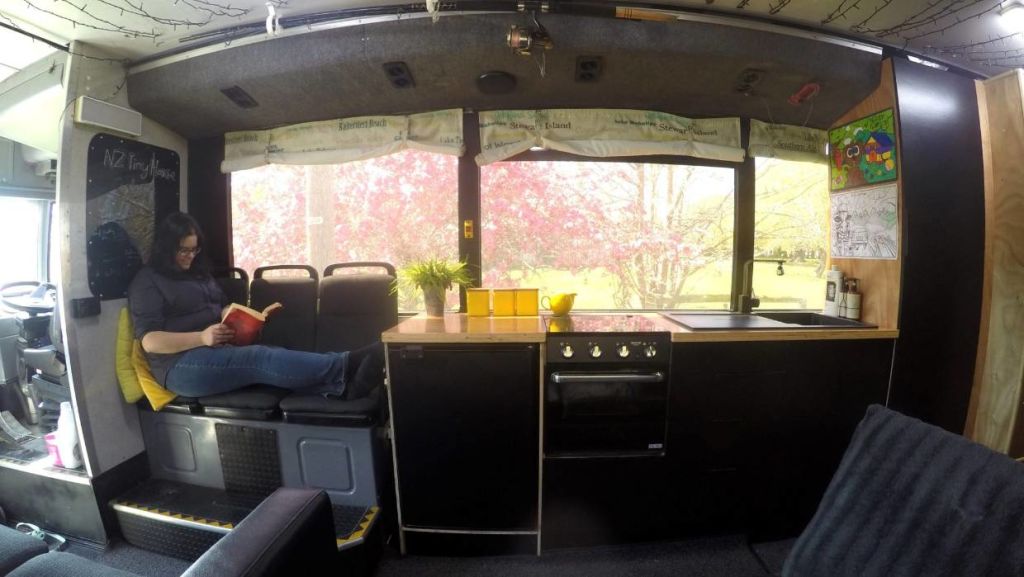
Finances
May works online in marketing, advertising and web design. And she says she much prefers to have several strings to her bow.
“Years ago, I was working for a newspaper and a week before settlement on my first house I was made redundant. That happened a couple of times. And I thought, this is crazy that we’re programmed to get our income off one main source. Now I always try to have three income streams.”
At times May takes on temporary work. Right now she is working full time in an HR role till June, for a kiwifruit pack house in Te Puke. “We are staying on a lifestyle block next to the orchard and there [are] kennels, which the dogs have all to themselves in the daytime. They are loving it.”
Tiny house conference
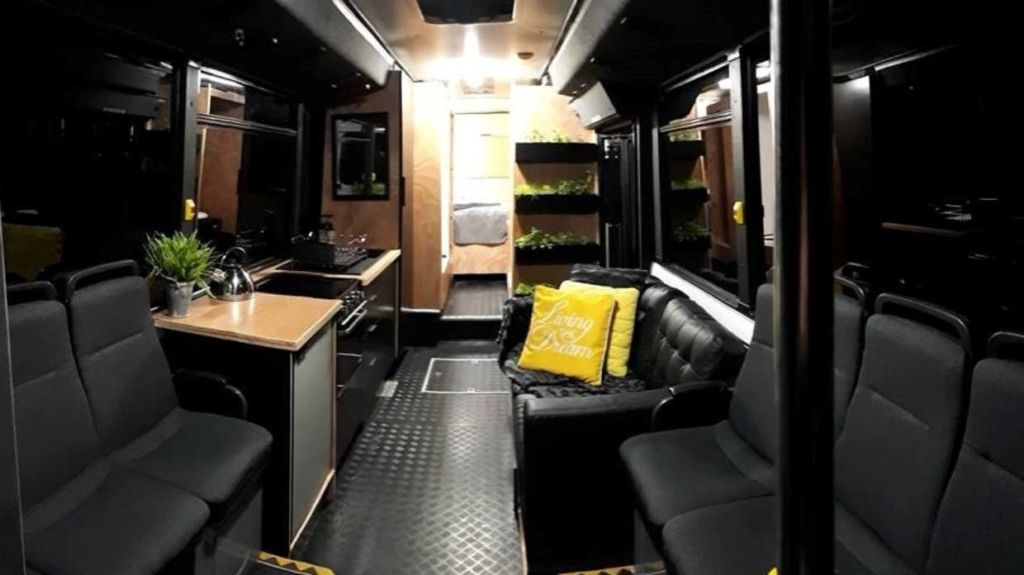
May was one of a group of people who set up the New Zealand Tiny House Association, and is managing the conference scheduled for May, in Manukau, Auckland. The association is working on proposals for a bill, which it will take to parliament, which will classify regulations for “long-term dwelling in tiny houses on wheels”. The association would like to see established standards inserted into the NZ Building Code.
“When I started working on my tiny house, the movement was a lot smaller. I felt like a lone sheep. I have learned lots, but I have also had issues, notably with damages caused to property by a moving company. That was very stressful,” she says.
“We will be sharing tips at the conference. It is valuable to be able to learn from others’ mistakes. The conference gives everyone the chance to network in real life.”
It’s also an opportunity for tiny house enthusiasts to see a lot of ideas in one space – be it a house bus or a more traditional tiny home.
This article originally appeared on stuff.co.nz
We recommend
States
Capital Cities
Capital Cities - Rentals
Popular Areas
Allhomes
More
